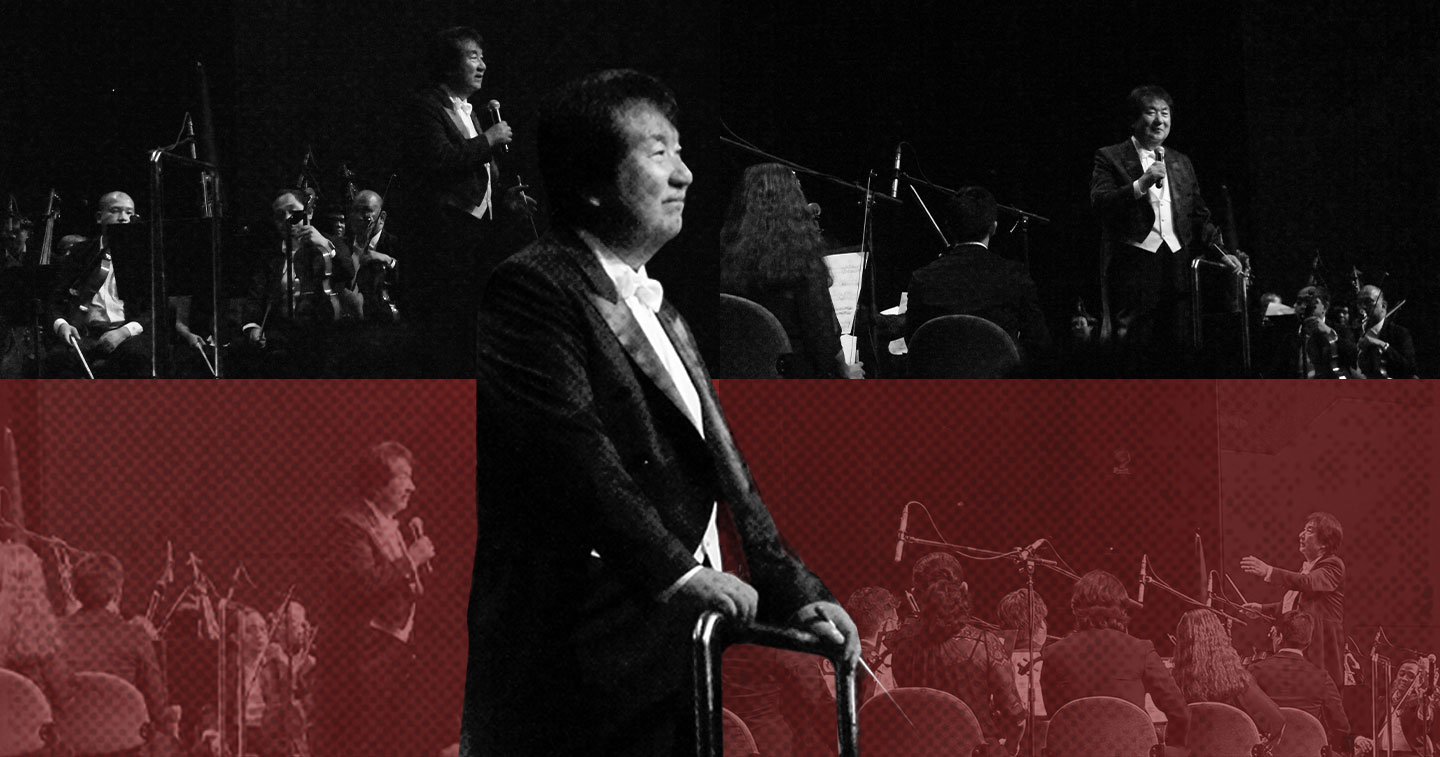MANILA, PHILIPPINES — There is something special when the orchestra is onstage instead of the pit. You see the entire ensemble in their neat sections. You become aware that the notes swelling you hear are from the bowing of the strings, and that percussionists tread stealthily until their time.
Maestro Yoshinao Osawa led the Philippine Philharmonic Orchestra for a single afternoon of NOSTALGIA: Music from Movie Musicals and more! held at The Aliw Theatre on August 10. The concert opened with some of the most recognizable pieces, like “Habanera” from Carmen Suite No. 2, before moving to the centerpiece: film soundtracks that appeal to nostalgia.
More measured than dramatic, perhaps owing to his decades-long career, Yoshinao eased into beloved film music with the scores from The Godfather, The Sound of Music, and his favored Leonard Bernstein musical: West Side Story. Further into the program: an amalgam of classic pieces that traverses from France, and Italy, to Cuba.
Aptly, he stripped the theater of the grandeur that usually separates the audience as warm bodies in the room, prefacing each number with spiels on the origins or on why he chose to include them in the repertoire. But when he’s on the podium, he’s the conductor who sensibly knows what the piece calls for — tempering the dynamics on more than one occasion, diligently stopping until the orchestra got it just right. His annotations were very much part of the show and the second takes he earnestly did with no sleight of hand.
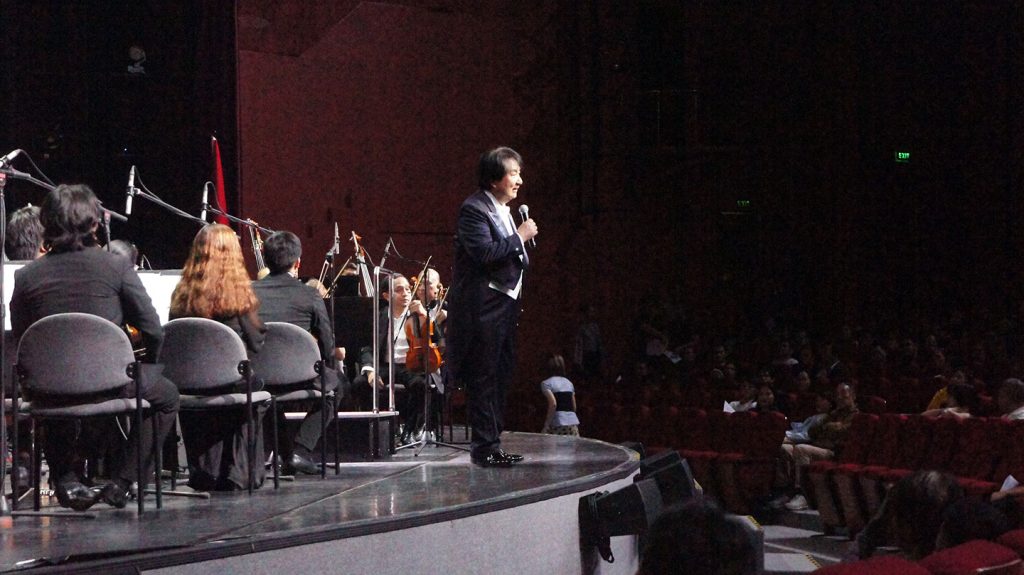
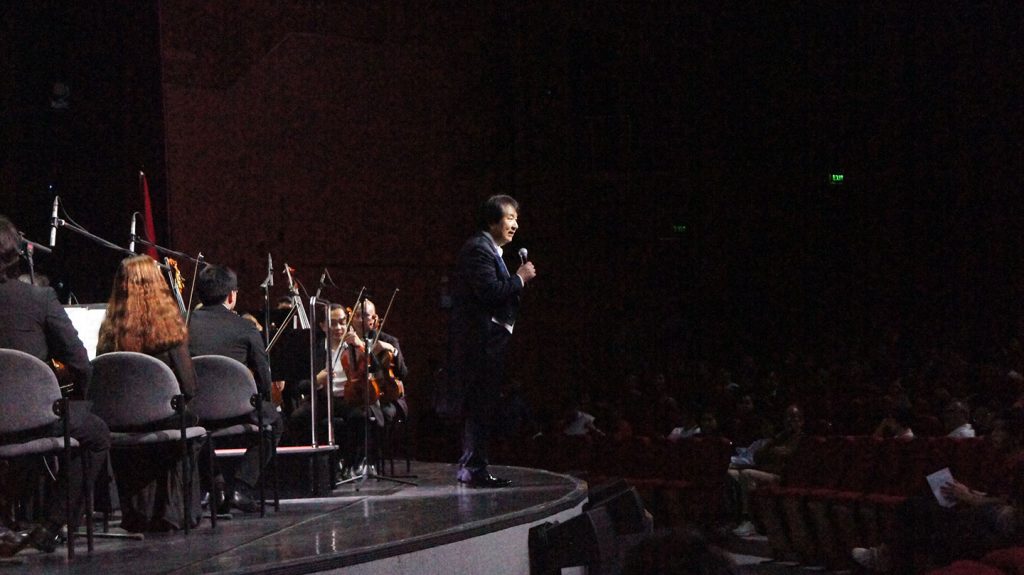
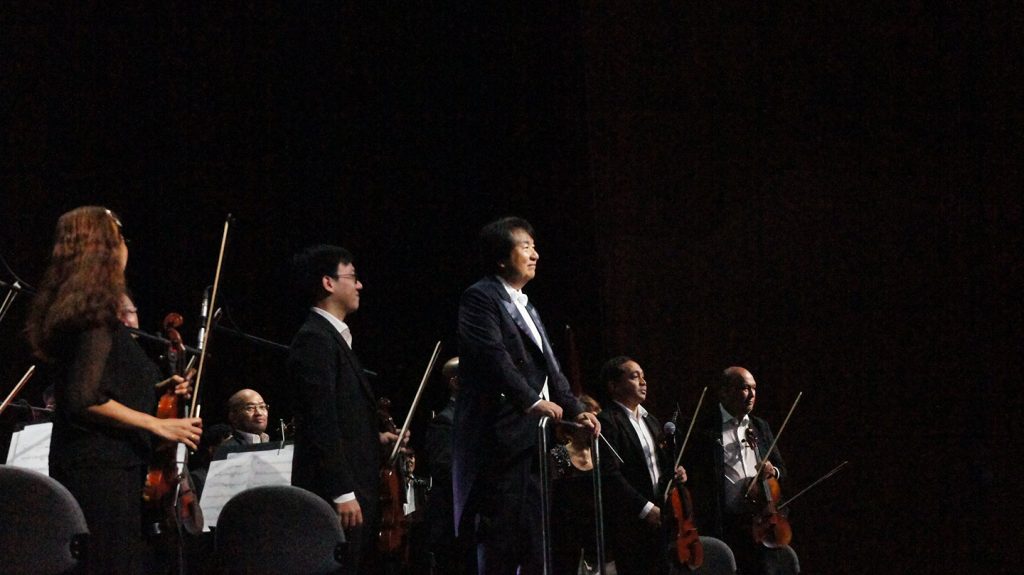
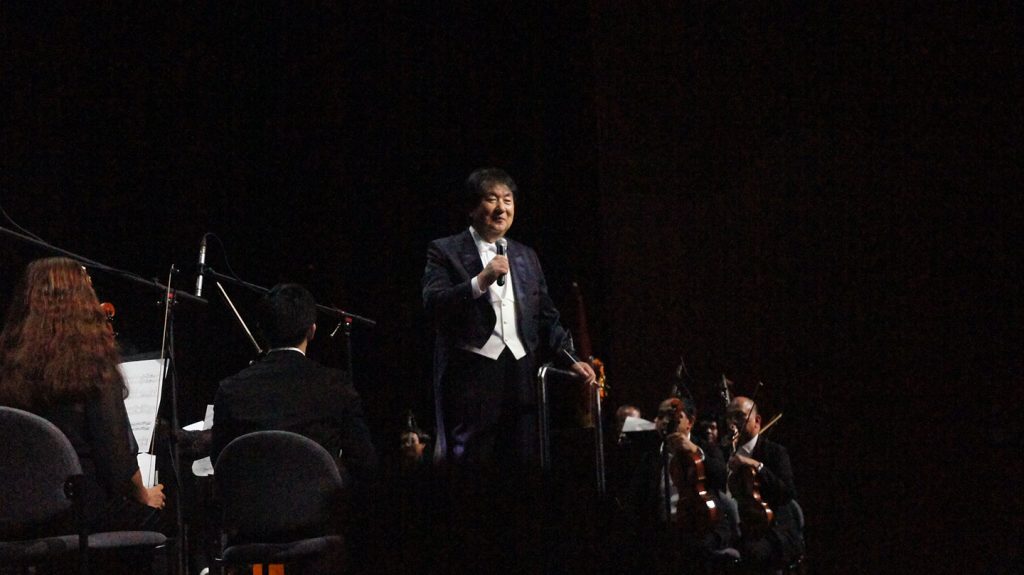
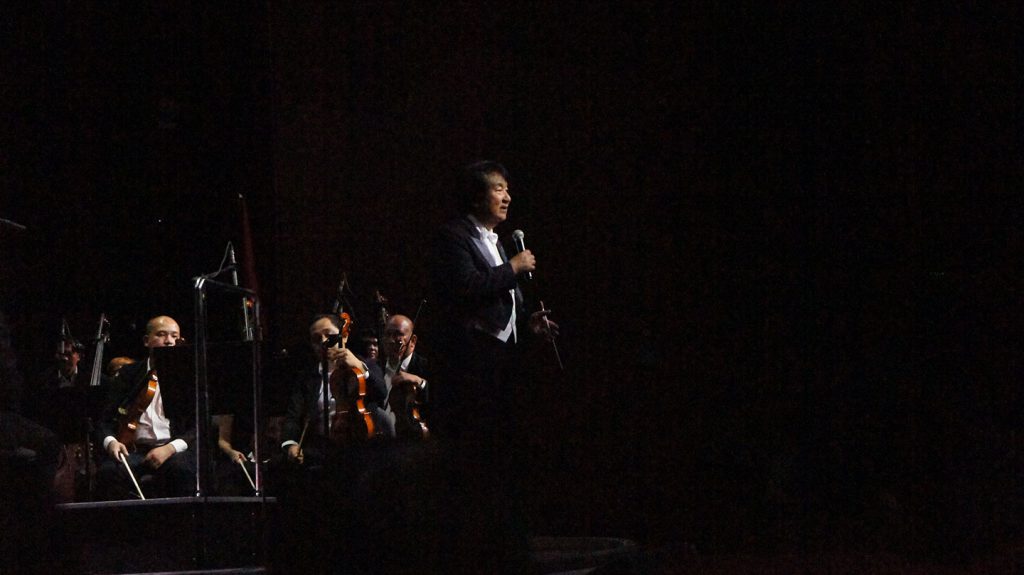
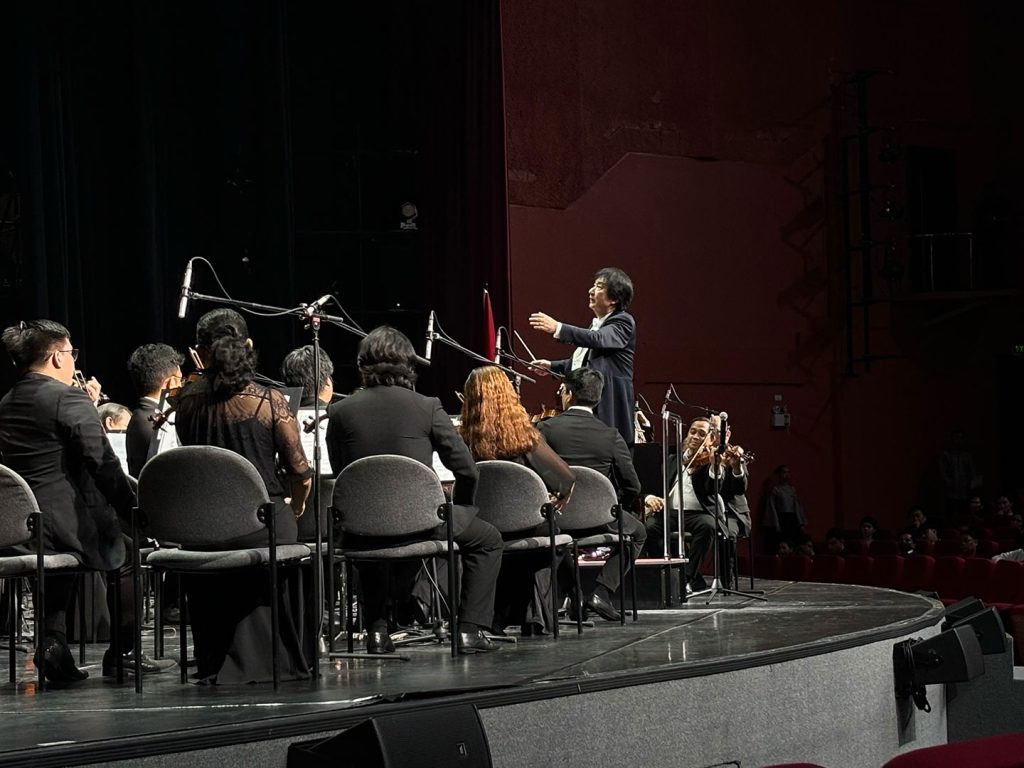
This, however, did not discount his showmanship. He was candid as he was commanding. With palms downwards, he reposed the strings to the effect of its delicate sonority and soft pianissimos except at the finale, when he was sweeping into a heightened tension, leaning in as if to snap the violinists in precise downbeats; the conductor’s distinct pleaser nature shows up for the audience for the entirety of the concert.
What Nostalgia featured — both in repertory and the musicians — gave its concertgoers a semblance of recognition. The final numbers spared his concentration from the orchestra and towards the audience when alongside the baton in one hand, he seized the microphone in the other for a splashy rendition of “Love is a Many Splendored Thing” and “(I Left My Heart) In San Francisco”.”
As a guest conductor, Yoshinao Osawa has definitely made a vigorous connection with the Filipino audience, whom he described as warm, evidenced by their reception when he serenaded them.
As the strong finish, the maestro waved it all with the arresting “1812 Overture” by Tchaikovsky. He brought his hand to the formidable piece with finesse that directed the orchestra from the corners of the theater — quite literally when brass bands were stationed at the left and right of the house as they delivered rapid blows in the fanfare cadence. Here he was in his most animated element: arms outstretched and jumping for the fortissimo entrance of the band.
Noteworthy even post-show was the maestro’s assembly of the musicians and instrumentation: maximizing the percussion’s role with the hypnotic timbre of the harp, one that’s often traded for electronic record for practicality. For certain, if he were permitted to, the crescendo would break into the actual canons and church bells that 1812 is known for.
For a piece that its composer considers without warmth and heart, the Philippine Philharmonic Orchestra brought the overture to life with such ardor that it seemed the music poured from the tip of the stick.
Giving ground to its title, NOSTALGIA: Music from Movie Musicals and more!, in this case, “and more” is not a substitute for et cetera but indicative of the beyond-ness in deliverance — truly more than what Filipino concertgoers came for.
In this direction where no audience is alienated, the Cultural Center of the Philippines and its classical treasures keep inching toward popularity. If anything, the afternoon proves that the orchestra is still a vehicle of storytelling and the universality of music.

